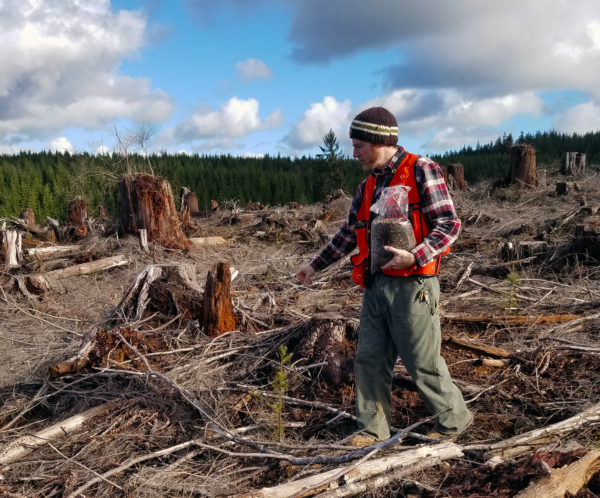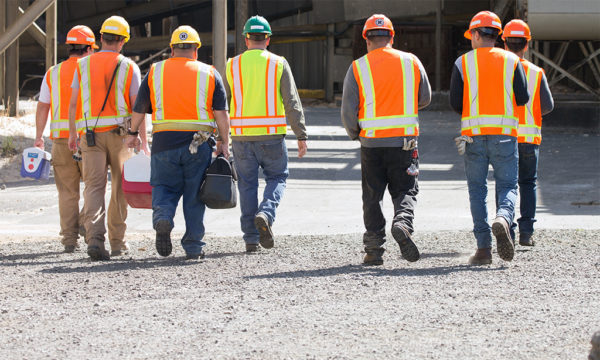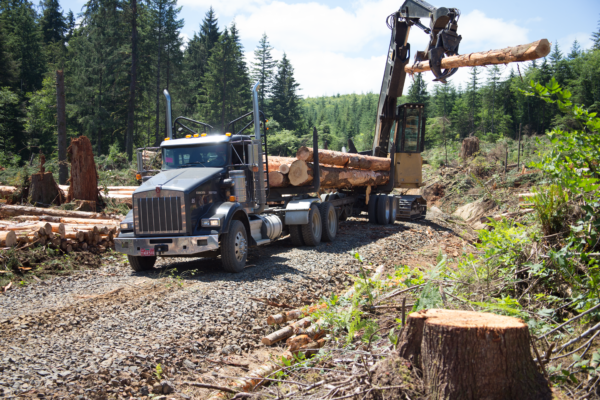Sustainable Materials
Sustainable Materials
Wood works.
Wood is not only a renewable resource, it is an incredibly efficient way to meet a number of economic, social, and environmental needs. Trees remove and store CO2 from the atmosphere as they grow. Harvesting and turning trees into lumber for buildings, furniture and other products helps us capture that carbon while meeting needs for housing and development. The Pacific Northwest is one of the best places on earth to grow trees so all our wood materials are sourced and manufactured locally.
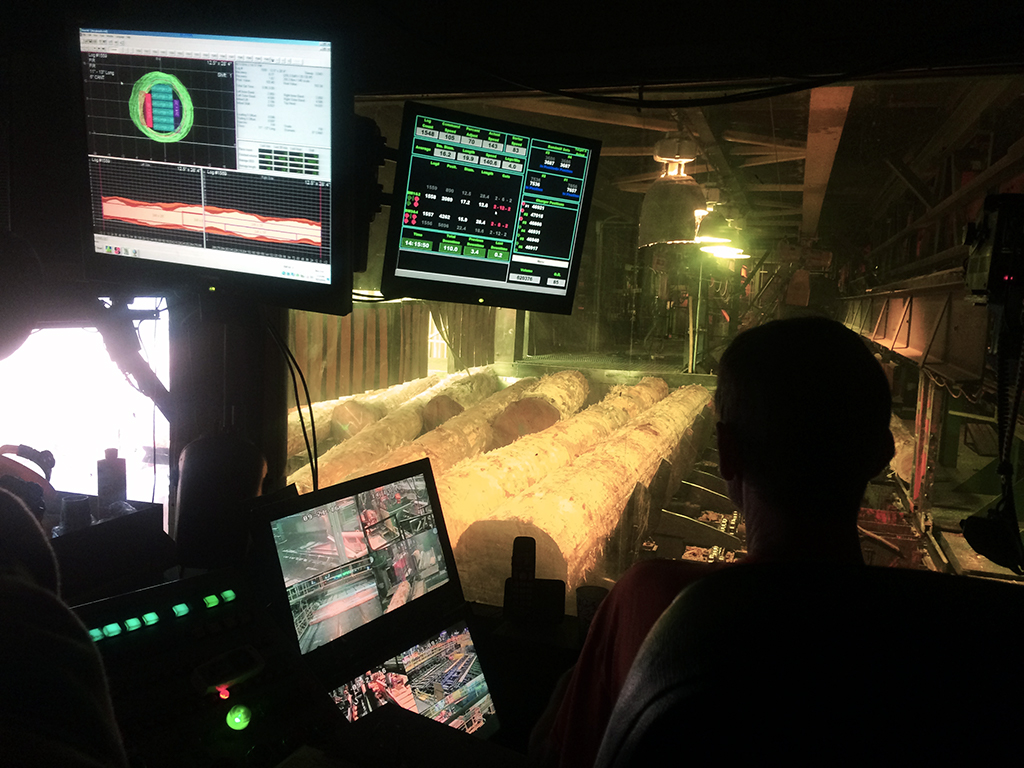
Making the Most of Our Resources
Zero waste processing.
New technology helps us get the most out of wood resources. 100 percent of a log is used when processed in one of our sawmills. What doesn’t become lumber is used for biofuel, pulp and paper, particle board, landscaping, and agricultural products. If you think about how many everyday products are available because of sustainably managed forests, you’ll start to see why wood is so incredible.Sustainable Manufacturing
Energy efficiency projects.
Hampton incorporates sustainable manufacturing principles at each of our sawmills. In Darrington, WA our sawmill cogeneration system burns mill residual wood waste (biomass) to produce steam for drying lumber. This steam is also converted to electricity by a turbine and generator and sold to the local utility as renewable energy. As part of the Energy Trust of Oregon’s Industrial Energy Improvement initiative, our Willamina mill incorporated new techniques and capital projects, which resulted in nearly 12 percent reduction in electrical energy use. And people are taking notice. In 2012 Hampton was recognized in Oregon with the Governor’s Award for Strategic Energy Management Practices. By saving water and electricity, eliminating waste, and researching new ways to produce higher quality products, we aim to better serve our customers and the environment.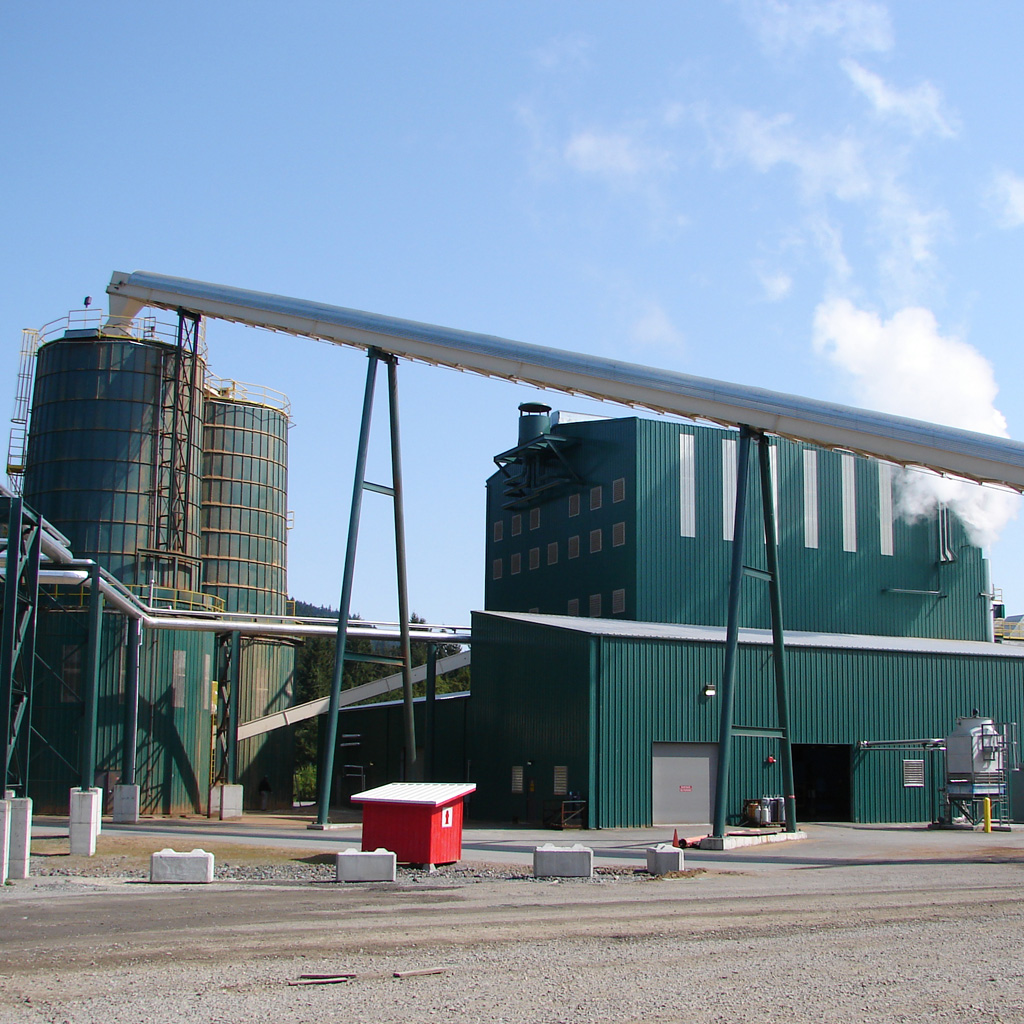
Expert Voices
Hear What People Are Saying About Forestry and Wood Products
Western Innovator: Creating pollinator habitats in forests
A Northwest timber company is studying how to support bees among trees. Hampton Lumber, a fourth-generation family business, is building pollinator habitats at its timber harvest sites around Oregon and Washington. Read More
Guest Column: Who will protect all the values of our forests?
Daily Astorian, 12/29/22 – In mid-November, the Oregon Board of Forestry met in Seaside to discuss, among other things, a new 70-year plan for state forests. At the meeting, environmental interest groups led petitions to support the plan regardless of the impacts to rural Oregon. Their solution to the ensuing drop in revenue? Decouple state […] Read More
OSU researcher helps UN develop sustainable forest products recommendations
Oregon State University, 12/27/22 – “Three-quarters of current total material demand is met through non-renewable natural re- sources,” the authors note. “Changing unsustainable consumption patterns is necessary to avert a climate catastrophe. Transitioning to a forest-based circular bioeconomy can be a significant step in that direction.” Read More


